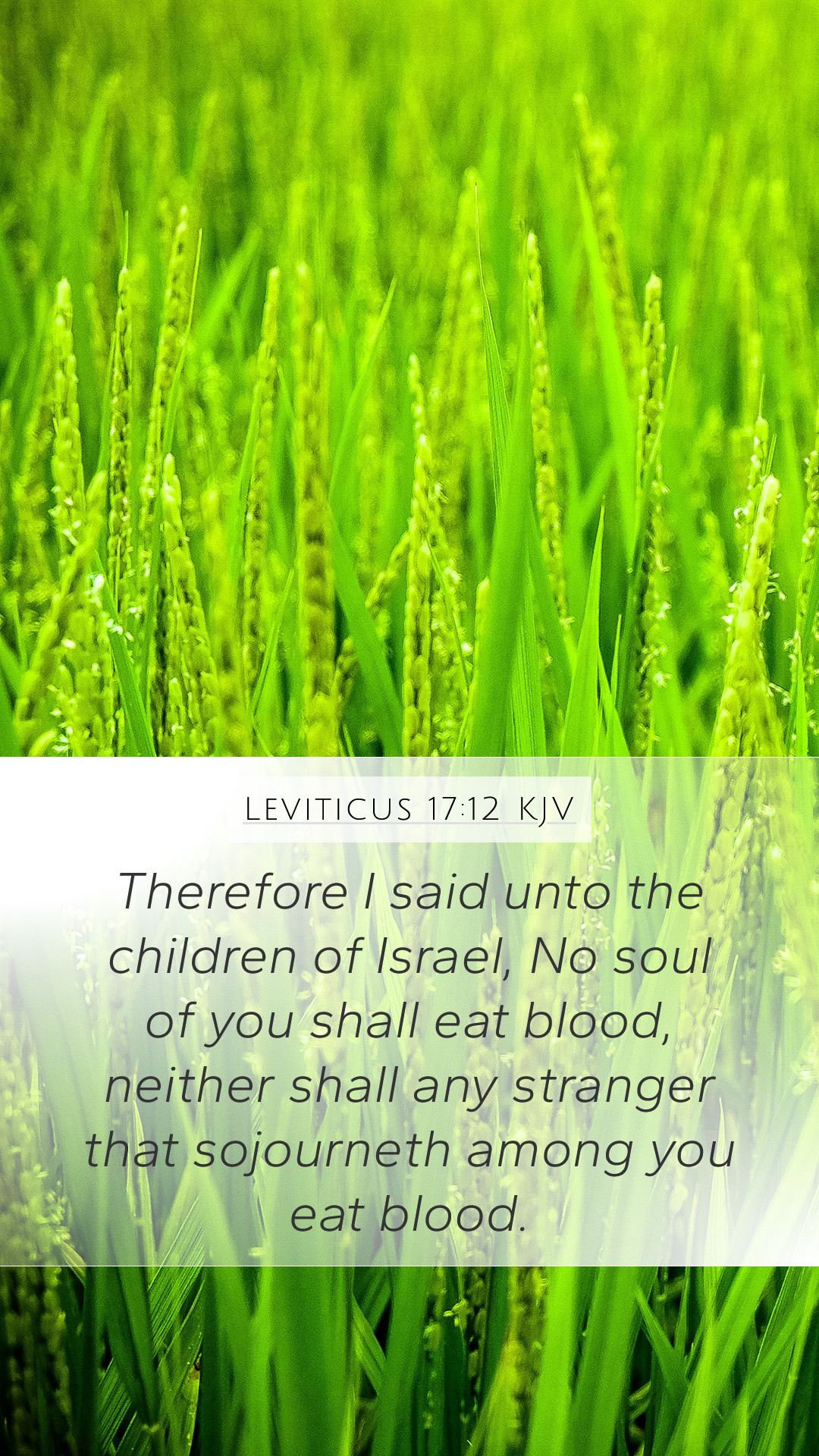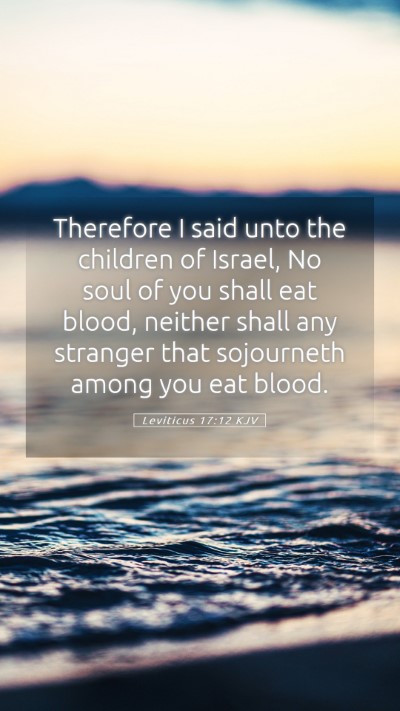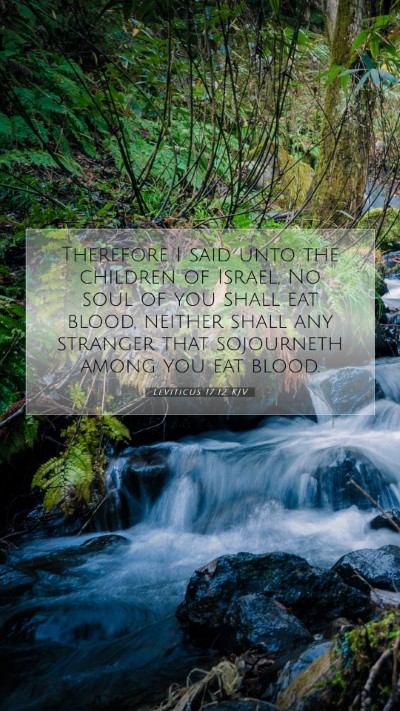Understanding Leviticus 17:12
Leviticus 17:12 states: "Therefore I said unto the children of Israel, No soul of you shall eat blood, neither shall any stranger that sojourneth among you eat blood." This verse is significant in understanding biblical themes regarding dietary laws and the sacredness of life within the context of Old Testament law.
Bible Verse Meanings
The command against consuming blood is rooted in the understanding that blood represents life. Both Matthew Henry and Adam Clarke highlight that God’s prohibition is keenly tied to the sanctity of life and the blood as a symbol of atonement.
Symbolism of Blood
In biblical tradition, blood is not just a physical substance but rather, it symbolizes life and the covenant community. Albert Barnes notes that God's directive emphasizes the importance of life concerning sacrifice, where blood is seen as the means of atonement for sin. Thus, blood belonged to God alone.
Bible Verse Interpretations
This verse prohibits the ingestion of blood, indicating a broader spiritual principle of respect for life. Blood was to be offered to God in sacrifices, and any unauthorized consumption would violate this sacredness. This remains a topic for in-depth Bible verse analysis, helping individuals understand its relevance today.
Historical Context
Understanding the historical context of Leviticus 17:12 is crucial. The Israelites were in a transitional phase where they needed to define their identity as God's chosen people, differing from surrounding nations. This dietary law set them apart and established a boundary about what was holy and acceptable in God's sight.
Application of Scripture
Applying this verse to daily life involves recognizing the continuing significance of life’s sanctity. Blood’s sacredness transcends dietary laws and emphasizes a respect for all life. This principle leads believers to reflect on how their actions align with a respect for God’s creation.
Insights from Public Domain Commentaries
- Matthew Henry: He emphasizes that the prohibition serves to teach the Israelites about their relationship with God and the necessary respect for life, showing that blood and life are intertwined.
- Albert Barnes: Barnes points out that blood consumption is a direct violation of the law, as blood is accorded a greater value reflecting God's covenants with His people.
- Adam Clarke: Clarke expands on how this command offers insight into the holiness of God and reinforces that dietary restrictions are part of being in covenant with Him.
Significance of Leviticus 17:12
The verse serves as a pivotal point for understanding God's laws concerning sacrifices and dietary restrictions. These laws were foundational for the Israelites in establishing not only their identity but also their relationship with God. Understanding these laws can provide insights for Bible study groups looking to decipher the Old Testament teachings.
Cross References
- Genesis 9:4: This verse also reinforces the concept of respecting blood and the life it represents.
- Leviticus 7:27: It specifies the consequences for consuming blood.
- Hebrews 9:22: This New Testament verse emphasizes the importance of blood for atonement.
Conclusion
Leviticus 17:12 provides essential insights for understanding Scripture. The verse highlights a significant old covenant principle that holds relevance in contemporary faith practices. Engaging in biblical exegesis and scripture analysis will help uncover the depth of meaning within this and other Bible verses, facilitating a richer Bible study experience.


